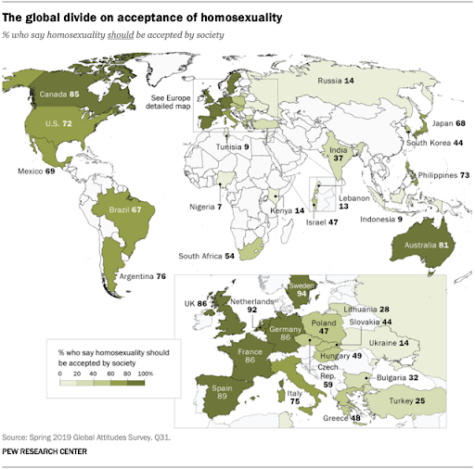The Pink Tax Problem
The pink tax is an egregious example of inequality in both advertising and the shopping industry.

The pink tax affects women across America.
April 21, 2023
The pink tax is an issue that is commonly ignored or misunderstood yet that continues to profit off of women and contribute to sexism. This tax refers to inflating the price of goods that are specifically manufactured for women. Companies attempt to appeal to women by offering items that are typically seen as feminine but marketing it as more expensive in order to profit despite it being the same as any ordinary product. This also applies to the fact that menstrual products are viewed as a luxury item and priced as such. Companies using this system set up the view that basic necessities are seen as mandatory for men but a luxury item for women.
According to Business Insider, women end up paying 13 percent more than men for basic hygiene products. Though this may appear like a small difference, these inflated prices can add up over time. Despite the wage gap still being an issue where, according to Pew Research Center, women make 82 percent of what a man in the same position would make, they are also forced to pay more in order for their basic needs to be met. This is not to mention the fact that period products are still priced as if they are luxury products, meaning that they are taxed similarly to items such as makeup, toys, or electronics, according to CNN. Not only is the pink tax perpetuating the view that periods are something that women can simply stop having, but it also fails to account for the women that can’t afford to pay those prices. According to The New York Times, the average woman spends nine dollars every month on period products. That is over $100 a year, and will account for thousands of dollars throughout life.
Some states have begun taking action against this. According to Westlaw Today, California, in particular, has implemented the pink tax law, which prohibits changing the price on two different products that are similar if the goods are priced differently based on the gender they are marketed towards. California had also previously passed the Gender Tax Repeal Act of 1995, which prohibits price discrimination in services. The passage of these laws means that considerable steps are being taken to ensure equality.
The pink tax is not an issue that should be brushed aside; it is a direct threat to equality and should be treated as such. With the pink tax still in effect, large corporations continue to profit off of women as women continue to have to work harder in order to ensure that their basic needs are met. The only way to combat this is to continue to pass laws such as the pink tax law to make the pink tax illegal and no longer an affliction on the wallets and spirits of women.
















